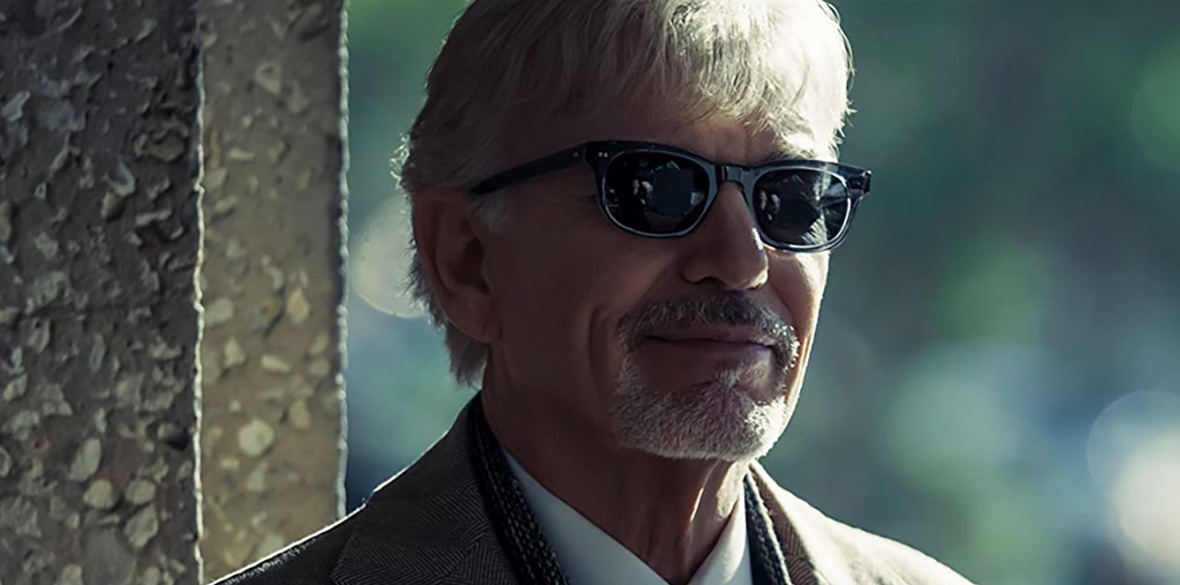This is the last article you can read this month
You can read more article this month
You can read more articles this month
Sorry your limit is up for this month
Reset on:
Please help support the Morning Star by subscribing here
THE streamers, supposedly free of network TV restrictions, have initiated what amounts to their own autumn subscription drive with each attempting to outdo the other in big special event series that also brand the company.
There is Apple TV+’s celebration of the wonder of technology within a declining empire in Isaac Asimov’s Sci-Fi-classic Foundation, and Amazon with a fourth and last season of David E Kelly’s Goliath which rightfully and insightfully attacks the greed and murderousness of drug companies while also nicely tilting the spotlight away from Jeff Bezos and Amazon.
Both however fail to match the splendour of the remake of a network TV sitcom The Wonder Years on the terrestrial channel ABC (owned by Disney and part of its “diverse” family strategy), this time with a black family and set in the revolutionary period of 1968.
It’s hard to overestimate the contribution this remake of the popular series, which began in the late ‘80s and also was set in the ‘60s, makes to a deepening and politicisation of the standard sitcom.
Don Cheadle’s voiceover narration begins the episode as we watch the 12-year-old Dean Williams peddling home in a middle-class post-segregationist black neighbourhood recounting “the talk,” not about sex, as might be the topic of the original series about a would-be white writer, but about how to behave in a black boy’s first encounter with the police.
The somewhat nerdy Dean is positioned in typical Malcolm in the Middle sitcom mode between an athlete older brother and a beautiful popular debutant sister, feeling he will never live up to either.
However, the twist here is that he is also positioned between them politically with his absent brother away in Vietnam and his sister becoming radicalised.
Also emphasised is that the “post-segregationist” US is no less racist. A wonderfully telling scene has Dean and his black and Jewish friends at the school water cooler which a white girl and boy then avoid.
There is a lot of moralising about the savage viciousness of drug companies such as Purdue Pharma, perpetuator of the opioid crisis, in season four and the final season of Amazon’s Goliath, all warranted but perhaps also by comparison shining a better light on less murderous worker gaugers such as the show’s parent company which this week was revealed has carried its overexploitation of its employees into Amazon’s space division as well.
Nevertheless, this is an extraordinary final season that does a superb job of wrapping up this series about a self-destructive, alcoholic lawyer (Billy Bob Thornton in one of his greatest roles) who also happens to be a brilliant legal mind and who enjoys sticking it to corporations.
The series focuses on an underreported aspect of the crisis: the way lawyers on both sides collude to fix a settlement price that amounts to mere peanuts for the companies involved and, in that way, prevents the most damning aspects of company policy from ever emerging in court.
Because there is so little government regulation—a main point that emerges is that the companies do their own drug testing which federal regulators then approve—corporations more than ever fear a jury trial where they will be dragged before the public and Billy, the recalcitrant lawyer, is appalled that over the last decades the amount of civil suits that have gone to court where companies must face the public have declined from 20 to 2 percent.
What is unique here is the show’s late reveal that the company knew all along about the addictive quality and rather than run from it embraced that aspect of the drug to further its profits.
The least successful and the silliest of the major fall series is Apple TV+’s Foundation, based on the Isaac Asimov trilogy, about a future world where algorithms reign supreme.
The empire has become a kind of cloned Dupont dynasty, inbred, self-perpetuating, decaying and under attack not by actual rebels who want to overthrow the imperial reign but by mathematicians who predict the empire will collapse in five centuries (not much of a prediction).
What better advertisement for Apple, a Silicon Valley company par excellence, which presents itself as outflanking government in both managing the future and preserving the integrity of its users.
A word about The Crown: “Yuck.” The success of this Emmy darling and British and US fetish can probably best be explained as Elizabeth’s “grace under fire,” meaning her “bearing up” under the fall of the British empire as the US empire is itself in the process of crashing and as both sides of the Atlantic lionise an institution whose sell-by date has long since expired and which owns half of the land in the UK while working-class tenancies deteriorate and homelessness abounds. Its US royal equivalent being Bill Gates who now owns half of the country’s farmland.
The main problem with Foundation is the ambivalence about preserving what amounts to a fascist empire, the same empire Apple is both building and helping to undercut as it moves itself to outflank all forms of government as it defines “civilisation” not as culture but as algorithms.










